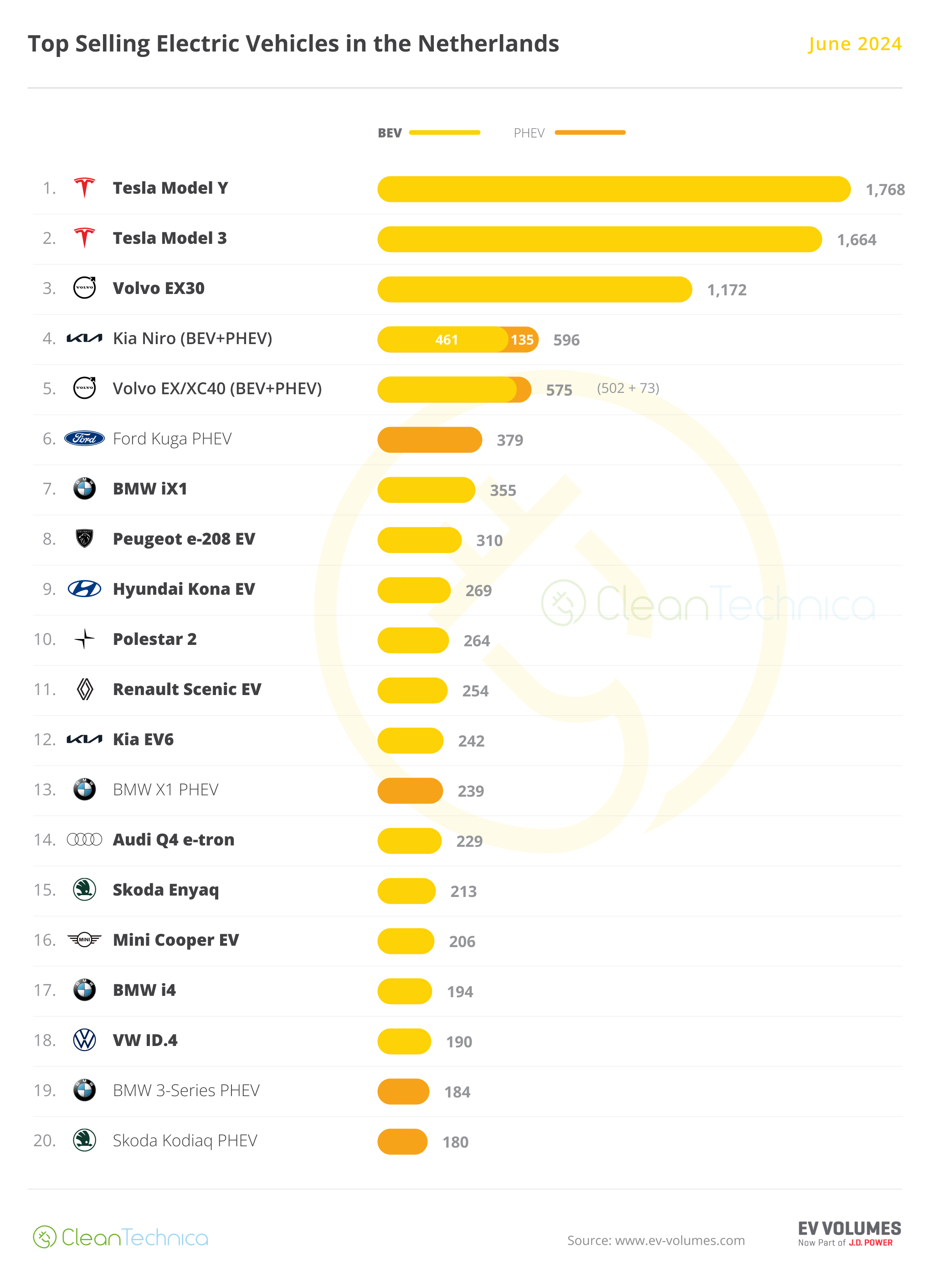Sign up for daily news updates from CleanTechnica on email. Or follow us on Google News!
A recent article at Consumer Reports reveals what some of the top car brands are seeing in terms of customer loyalty, as well as which car brands see the least loyalty. I plan to go through some of the more interesting finds, but based on this graphic from Car Dealership Guy on X/Twitter, you can probably guess that I’m going to talk a lot about Rivian.
Shocked to see Rivian as #1 in car brand loyalty—by a long stretch.
(via Visual Capitalist) pic.twitter.com/s29Iw0c41G
— Car Dealership Guy (@GuyDealership) March 26, 2024
Not only did Rivian take the #1 spot for how likely a customer is to buy another one instead of switching to a different brand, but the company beats the next best vehicle brand by 9%. With all of the others in the top 8 only separated by 1–3%, this is a decisive and statistically important (and maybe significant) leap over all of the others.
To the likely chagrin of EV fans (especially Tesla fans), the next three brands are all “legacy auto.” MINI came in second, followed by BMW (MINI’s parent brand) and Porsche. Only after all of these brands do we arrive at Tesla. This is sad for Tesla, because Tesla used to rank #1 in brand loyalty. But we have to keep in mind that Tesla was once the only brand selling EVs with reasonable range and charging opportunities. With new electric brands emerging, there are now options that Tesla owners can consider without having to go back to ICE.
It’s also interesting to note that the top 7 spaces that achieved a satisfaction score of 4 (other than Rivian, which got a 5 out of 5) are almost all luxury brands. For example, Genesis and Lexis are both up there, while their parent companies, Toyota and Hyundai, rank lower. So, there’s more to this than electric offerings. The premium feeling helps cars that are similar to cars from more mainstream brands rise to the top and inspire more loyalty.
However, this isn’t always true. One notable exception to this is Honda outplacing Acura in the satisfaction and loyalty score. Another is Chevrolet beating Cadillac. Similar cars with fewer features but more perceived value seem to be winning sometimes.
The bottom doesn’t surprise me much, though. Nissan has a lot of known quality problems, especially for cars with CVT transmissions and EVs without liquid cooling (the LEAF). Only a little more than half of Nissan owners would consider another Nissan, while 12% less would consider another Infiniti (Nissan’s luxury brand). Reliability is another factor that may have hurt Volkswagen and Mercedes-Benz in this area, too.
At the end of the day, it’s probably mostly about luxury, quality, and reliability. If you can get two of those things going for you, you can do good. If you can get all three, you can do better. If you can’t even eek out one of them, you end up at the bottom. Nobody should be surprised about that.
But, Rivian isn’t a luxury brand, so it stands out in much the way MINI does (it rose from #13 last year to #2 today). My theory is that what’s driving these top brands to more loyalty than the rest is experience, which is even more important than luxury. Rivian gives off-road capabilities that no Tesla other than maybe the Cybertruck delivers. But the Cybertruck just came out and you can get a Rivian a lot faster. The outdoor character gives drivers an experience with EVs that they couldn’t get any other way this year.
MINI is likewise delivering an emotional experience, but on pavement. While not an EV, the new lineup is taking the brand in that direction while keeping the cute and sporty things that got it there to begin with.
Featured image by Rivian.
Have a tip for CleanTechnica? Want to advertise? Want to suggest a guest for our CleanTech Talk podcast? Contact us here.
Latest CleanTechnica TV Video
CleanTechnica uses affiliate links. See our policy here.




